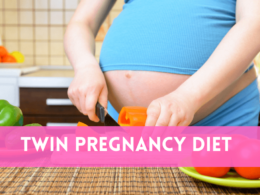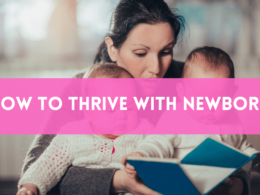You can hardly find any time for yourself after giving birth to twins. Remember the nights you could sleep a full 6 hours? Well, those days are long gone, at least for the first few months after birth.
According to the NHS, only 1 in 7 mothers of twins gets 6 or more hours of sleep per night during the first year after birth. So, sleep deprivation is common among twin mothers. A lack of sleep can make you feel a lot worse, especially when you have two newborn twins that need to be looked after throughout the day.
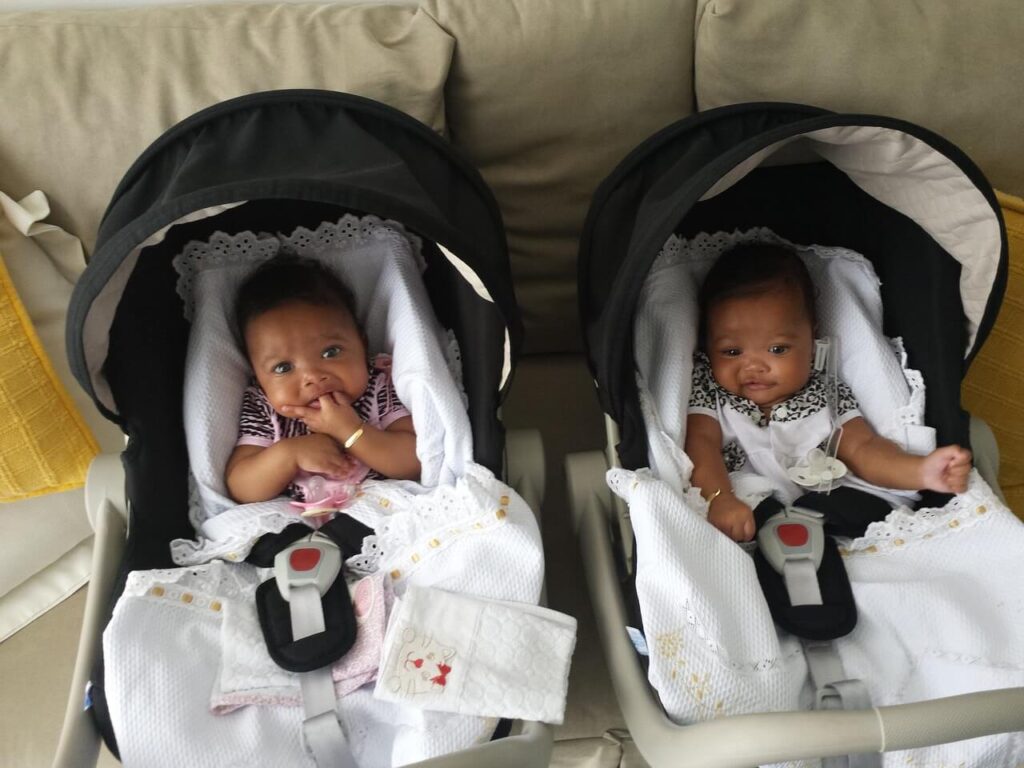
Things start to get difficult as you enter the fourth trimester of your pregnancy. This is a time when you come home with your twins from the hospital. You’re still recovering from delivery and you have two highly dependent, extremely fragile newborn babies who need to be looked after 24/7.
The repetitive cycle of constantly feeding, burping, changing, and getting your twins to sleep can be super exhausting. All the screaming and crying can really take a toll on your mental and physical health. You’ll really understand what the “twin experience” feels like.
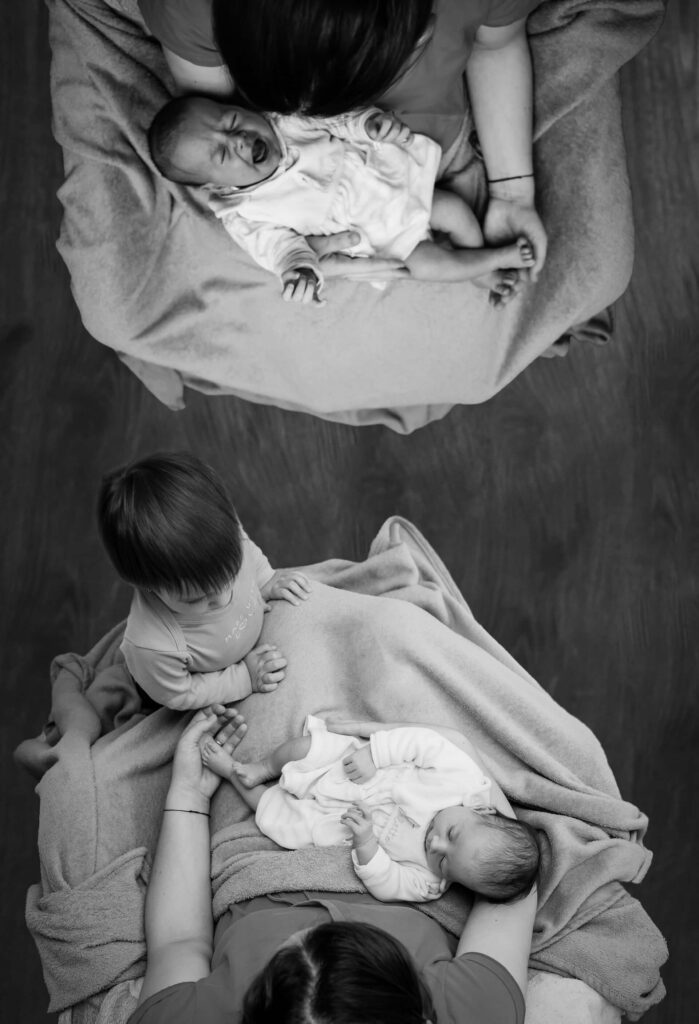
Parents of twins struggle the most during the first few weeks at home. The first few weeks at home can drain you both physically and emotionally. You’ll be having to do twice the work each time you feed your twins, change their clothes, do their laundry, and wash their dishes.
You have to get up several times at night to feed your hungry twins. If you are breastfeeding, your breasts are likely to get sore due to frequent feeding, which can be quite painful.
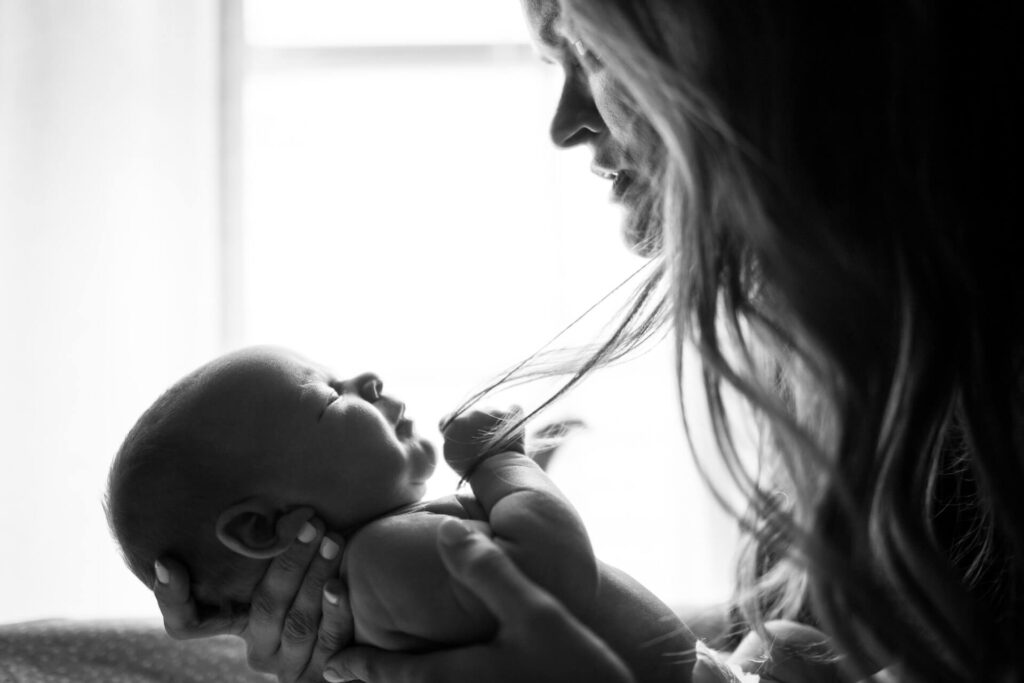
It is quite common for mothers to experience physical and emotional exhaustion, especially when their twins’ feeding and sleeping schedules do not align. There are instances when one of your twins has just gone to sleep while the other is still crying out loud.
You could also be struggling to feed both your twins at the same time. If so, you will be getting very little sleep and hardly any time to relax. At this stage, it is very common for mothers to suffer from postnatal depression.
Baby Blues – Feeling Depressed After Giving Birth To Twins
The “baby blues” refer to a period where the mother is consumed with sadness, anger, disappointment, and hopelessness right after giving birth. About 80% of postpartum mothers have baby blues. They can start as early as 2 to 4 days after giving birth and can last for about 2 weeks.

The common symptoms of baby blues include feeling restless and anxious. You may also feel impatient, grumpy, and upset more often than before. Intense mood swings are quite common as well. There may be instances where you find yourself crying for absolutely no reason. When you’re going through the baby blues, it may also be very difficult to focus on things.
Overcoming Baby Blues
The good news is that the baby blues do not last forever. While the baby blues usually go away on their own after a few weeks, there are some things you can do to feel better. Studies show that getting as much sleep as possible may help to improve your mood.
You can ask your partner or your family members to help you out with some chores. For instance, you can ask your partner to cook dinner, clean the house, or change diapers. You can ask your family members to help with groceries or to keep an eye on your twins while you sleep or shower.
You may also want to start exercising as it proves to be effective in minimizing stress. You can go out for a walk or a light jog while your partner watches the twins at home. If you are unable to go outside, you can do low-impact workouts at home. You can also start meditation or yoga.

When To Seek Help
If the baby blues do not disappear within a few weeks and you still feel low or feel that you are unable to cope with caring for your twins, you might be suffering from postnatal depression.
It is recommended that you get support from a healthcare professional or seek advice from midwives. You may also want to start therapy if you are not doing well mentally.
The Struggle Is Real
There may be times when you feel like having twins has ruined your life and you’re not the only one who thinks that. Most parents of twins have had the same thoughts at some point in their life. It is very easy to feel alone and socially isolated.
You don’t have the time to go outside with your friends or do anything for yourself during the first few years after childbirth. Plus, the workload involved in taking care of two same-age babies can actually start to make you feel insane. But do not worry, it does get easier with time.

You’ll start to see some positive changes a few weeks after birth. Your twins are likely to establish similar feeding and sleeping patterns which means that you will be getting more time to yourself. Once you are done with the newborn stage, you’ll definitely get the hang of it.
When Life Gets Easier With Twins
The majority agree that twins get easier from the third month onward. The milestones and developments of your twins are given below:
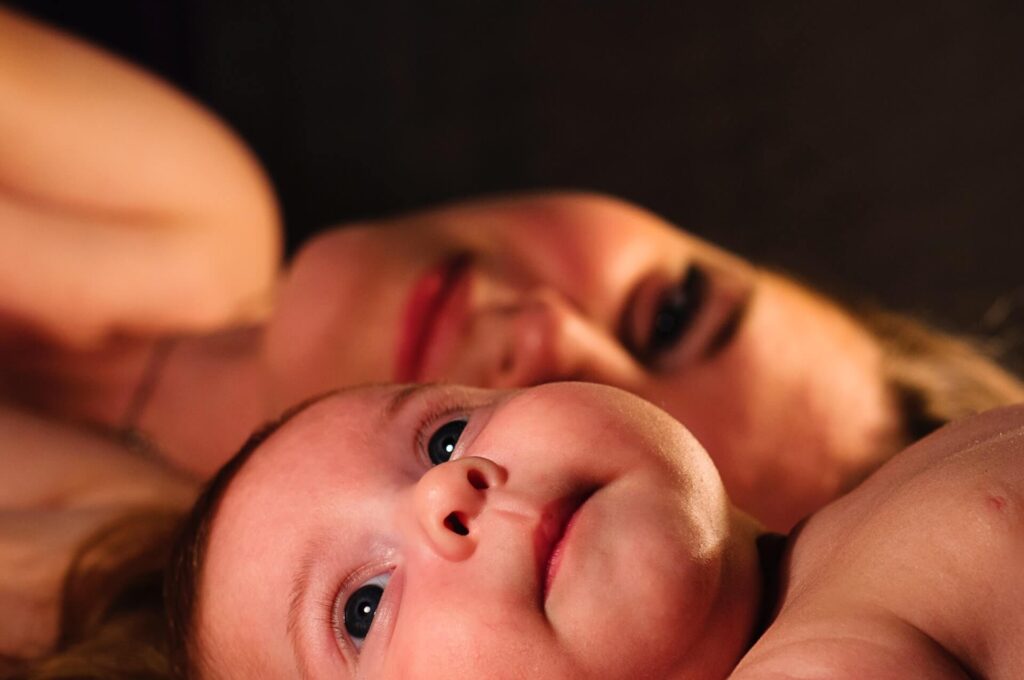
A. 3 months
The fourth trimester ends at 3 months of age. This is when things begin to get easier. You’ll notice your twins sleeping longer at night so you’ll get around 3 or 4 hours of sleep at a stretch.
You’ll also notice your twins taking naps at regular intervals. This will allow you to get some chores done or to watch some TV. During this time, feeding twins gets easier. You’ll probably be able to master feeding both your twins at the same time.
B. 4 months
When your twins are four months of age, you can begin sleep training. Sleep training is when you teach your twins to fall asleep on their own. This means that you are teaching your babies to fall asleep without being rocked or cuddled.
To sleep-train your twins, place them in their cribs when they are drowsy and leave the room. Oftentimes what happens is your babies start crying as soon as you place them in their cribs. This problem is solved if you are able to sleep-train your twins. It will teach them to fall asleep independently.

C. 6 months
At six months of age, your twins will be able to sit up by themselves. They will also be able to play with conventional toys such as blocks, soft toys, and push toys among others by themselves.
You will also notice that your twins are sleeping longer at night. You may expect them to sleep for at least 9 hours at night with fewer middle-of-the-night feedings. This allows you to get a lot more rest than before.
When your twins are six months old, you can also start weaning them. Weaning is when you begin to introduce food other than milk into your twins’ diet. You can introduce food such as soft vegetables, fruits, yogurt, or baby food along with their daily milk. When your twins start to get accustomed to solid food, they will slowly reduce their milk intake so you won’t have to breastfeed them for long.
D. 9 months
At nine months of age, you can expect your twins to move around a lot. They will begin crawling and might be able to eat by themselves while sitting on a high chair.
You can place small cuts of fruits and vegetables on the table and let your twins pick the food with their hands to try it out. During this phase, twins will usually start eating solid food more regularly. So, you might not have to get up in the middle of the night to feed them milk as frequently as before. Hence, you may be able to sleep better at night.

E. 10 months
Bonding between twins starts when they reach 10 months of age. Your twins will be playing with each other so you don’t have to entertain them at all times.
You can sit back and relax. During this phase, your twins will be able to sleep for at least 6-10 hours at night without any interruptions.
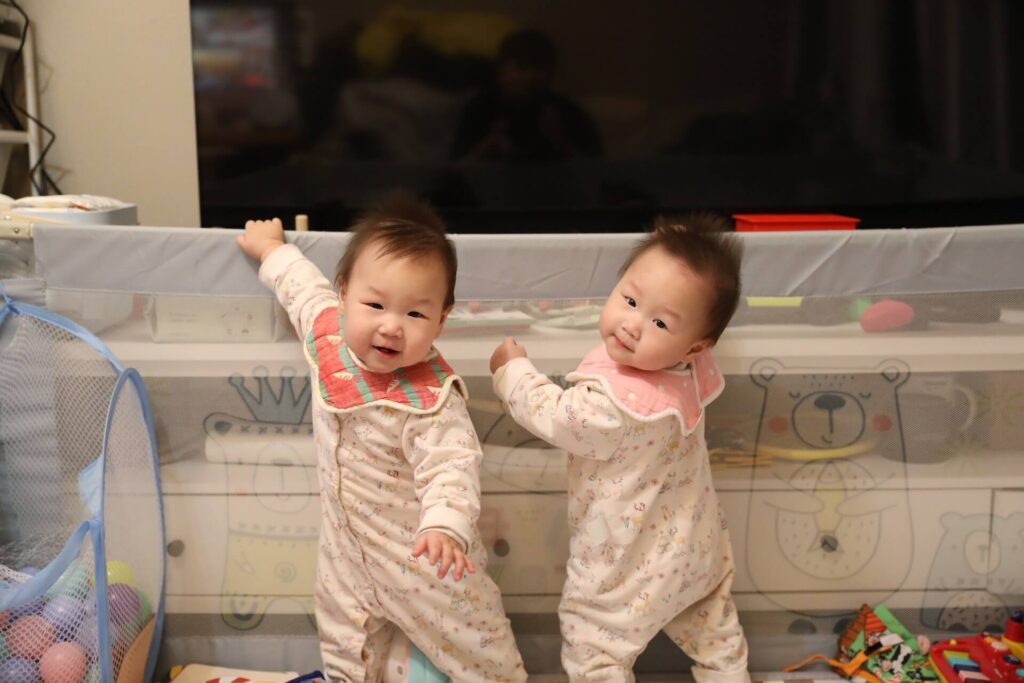
The first year is always the most difficult with twins. You’ll go through lots of emotions and learn a lot of things about yourself as well as about raising twins.
There will be days when you feel completely hopeless but it definitely does get better with time. Once the newborn stage has passed, you’ll get to enjoy raising your twins.






